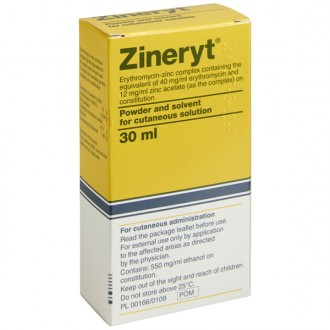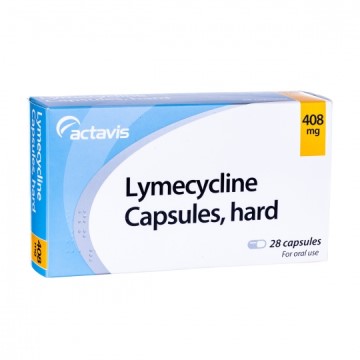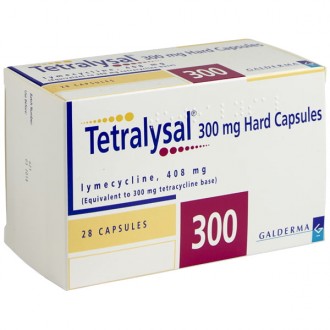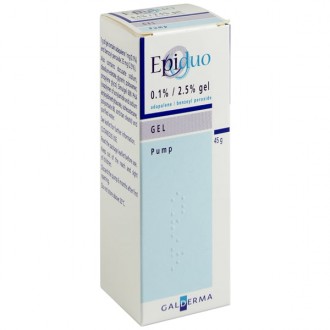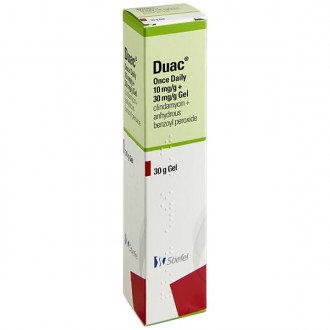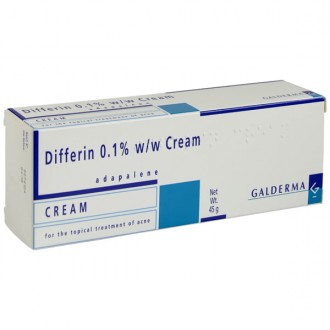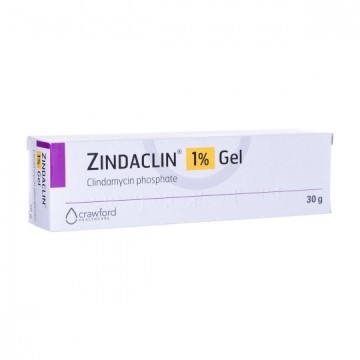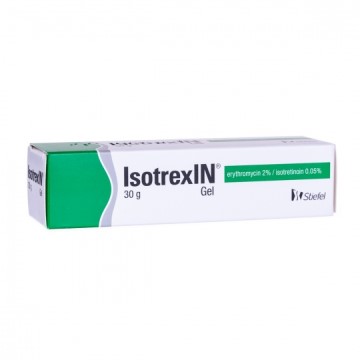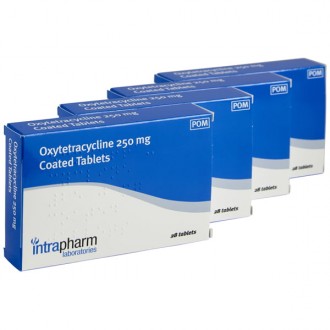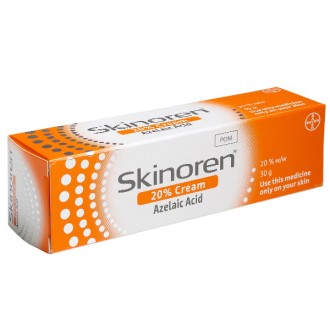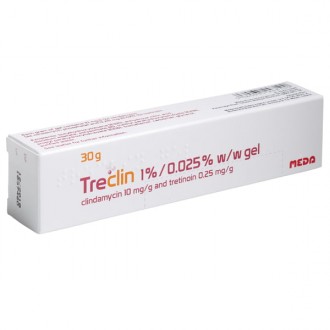Acne is a common condition that impacts people of all ages - despite being associated with teenagers. While mild acne often clears up with age, severe acne can affect people throughout their lives, often leaving many feeling hopeless.
Luckily, numerous treatments are available for acne and finding the right one can give you clearer skin and higher confidence. Pharmacy Online is the go-to place for acne medication and expert advice.
Once you have a free consultation, we'll recommend treatment options and ship them straight to your door.
What is acne?
Acne is a condition that causes spots on the skin, and it's widespread in the UK. Everyone has oil glands (also known as sebaceous glands) that omit secretions. When these secretions cause blocked pores, spots can form.
Many people associate it with puberty, as hormonal changes can increase oil secretions, but adults can get acne, too.
According to The National Institute of Health and Care Excellence, 85% of young people aged between 12 and 25 years experience acne, compared to 8% of 25 to 34-year-olds and 3% of people over 34.
Symptoms and Types of Acne
Papules: Small red bumps form on the skin. They don't cause any puss but can be uncomfortable.
Whiteheads: Also known as closed comedones, this form of acne causes white bumps.
Blackheads: These cause black spots and are often called open comedones.
Pustules: Small bumps that look inflamed, with yellow pus.
Nodules: Nodules can be red or flesh-like and begin under the skin.
Hormonal: Both women and men can experience hormonal acne, which causes cyst-like acne.
Cystic Acne: As the most painful acne subtype, cystic acne often results in painful red bumps.
Acne vulgaris
Acne vulgaris is a common form of acne that encompasses the many different types of pimples you might experience. While some people might experience pimples and nodules occasionally, acne vulgaris is a chronic condition that results in frequent flare-ups.
Acne conglobata
The British Medical Journal estimates that around three million GP visits for acne occur each year, and in rare cases, a doctor might diagnose a patient with acne conglobata. As the most severe acne, it's most common in men and causes painful, interconnected nodules over the body.
The causes of acne
Unfortunately, despite all of our medical advances, acne is still stigmatised as a condition that occurs due to poor hygiene—which couldn't be further from the truth. It's got nothing to do with bad habits or failing to wash regularly, either.
Acne can affect anyone, regardless of their daily routine, with the root causes being hormones and bacteria.
Hormones
Most cases of acne begin during puberty when hormone levels change. Androgen (testosterone) production increases in both boys and girls during this time, which tells the body to produce more sebum.
Many women also notice they get pimples around their periods, which is also known as hormonal acne. As the body changes, spots are common, with some females also experiencing painful nodules.
Bacteria
Bacteria doesn't necessarily mean bad hygiene, as most cases of acne happen due to excess sebum that blocks pores. Over time, this can lead to bacteria growing in the pores, resulting in whiteheads and blackheads.
In some cases, sebum might produce an inflammatory response, creating pustules and papules. People who use steroids can also suffer from hormonal acne.
Genetics
While some experts debate whether genetics play a role in acne, some studies do confirm that a parent with acne might increase the child's risk of getting it (BMC). Everyone inherits genes from their parents, including how active the oil glands are.
Environmental factors
The foods you eat might increase your risks of acne - especially if they're high in sugar and saturated fats. Again, there's no conclusive evidence of this, but many overweight people find their acne reduces in severity after losing weight.
Interestingly, Manchester and London have some of the highest acne rates in the UK, while people in Somerset have the clearest skin. The research published by Talk Health points to air pollution as a possible factor.
Potential complications associated with acne
When left untreated, acne can cause a range of complications - both mental and physical. Unfortunately, even with treatment, some people might experience regular flare-ups, causing further emotional distress.
Scarring
Cystic acne and nodules can cause scarring of the face and body. Some people might have noticeable scars, while others can use concealer and foundation to cover them. If you pick at your spots, try to squeeze them or scrub your face, the risk of scarring increases.
Hyperpigmentation
Acne often causes inflammation, which leads to dark patches on the skin. While the spots themselves fade, hyperpigmentation is usually noticeable and might take a long time to fade. Some people struggle with it long-term and seek treatment.
Infections
When you pick at your acne or try to make the spots disappear, it might lead to infections due to increased bacteria. Not only can infections make your skin worse, but they might also lead to pain and other symptoms.
Ongoing acne
Teenagers with moderate to severe acne might find it continues into adulthood. Adult acne can be challenging to deal with, and it often requires treatment from a specialist who will monitor the condition and try to reduce flare-ups.
Emotional distress
The American Academy of Dermatology highlights that acne isn't just a physical condition. It can cause low self-esteem, as many sufferers claim it makes them feel unattractive. Over time, this can turn into depression and anxiety, resulting in avoidant behaviours.
Acne treatments
While the condition can be challenging to manage, treatments for acne are available. Many people turn to over-the-counter face washes and lotions, which might offer some benefits but usually don't eliminate the root cause of acne.
Depending on your acne type, topical treatments, injections, oral medicines and holistic therapies.
Topical acne treatments
Topical acne treatment is a convenient way to manage your spots and reduce bacteria associated with the condition. They're also ideal for reducing inflammation and unclogging the pores, with popular topic treatments including:
Azelaic Acid: Renowned for its ability to unblock pores and eliminate bacteria, Azelaic Acid is a beneficial treatment for moderate acne and hyperpigmentation.
Epiduo Gel: Combining the powerful benzoyl peroxide and adapalene ingredients, Epiduo Gel can treat severe acne by killing bacteria and reducing inflammation.
Isotrexin: Mild acne can be challenging to treat, as powerful medicines might not be suitable for the skin. However, Isotrexin is proven to manage mild to moderate acne.
Zindaclin: Clindamycin is an antibiotic treatment that can reduce acne. Unlike most topical solutions, you can also use Zindaclin with other therapies.
Treclin: If you're looking for a combination treatment, Treclin uses both clindamycin and Tretinoin, which treats mild or moderate acne and removes dead skin cells.
Differin: As a retinoid cream that contains adapalene, the treatment has anti-inflammatory properties.
Oral acne treatments
In some cases, topical treatments aren't enough to get acne under control, and this is where oral medicines are beneficial. While creams and gels can clear the hair follicles and skin pores, tablets can treat the underlying causes of acne.
Oral antibiotics
Antibiotic treatment can kill the bacteria that cause acne, reducing inflammation. Topical antibiotic treatments can have the same effect, but you might want to try oral medicines if you're not noticing any positive changes.
Popular treatments include Lymecycline, Minocycline, Oxytetracycline and Doxycycline. You should only take prescription acne medication for a few months, as your body can build up antibiotic resistance, making it harder to treat infections in the future.
Hormonal treatments
Hormonal treatments can help people with acne symptoms around their menstrual cycle. The most popular are contraceptive pills, as they can regulate hormone levels and halt the production of oil. If you have a history of migraines, you'll only be allowed the mini pill.
Males and some females with hormone-related acne can use anti-androgens to block excess production of male hormones.
Other oral treatments
Isotretinoin: When other treatments fail, your doctor might prescribe Isotretinoin. It's beneficial for treating severe acne, but there are side effects.
Corticosteroids: Individuals with inflammatory acne can use corticosteroids, which reduce swelling.
Injections
When oral acne prescription medication doesn't work, it might be time to explore injection treatments, including:
Corticosteroid Injections: Instead of taking an oral medicine, corticosteroid injections go straight into acne lesions. These treatments can be one-off or continuous with recurrent acne.
Kenalog Injection: Also known as triamcinolone acetonide treatments, Kenalog injections can treat nodular and cystic acne.
In most cases, you'll have to see a dermatologist who will assess your skin and ask if you've tried other acne treatments due to the potential side effects.
Light-based therapy
In recent years, we've witnessed more people exploring light-based therapy - phototherapy. It's proven to be an effective acne treatment for people with mild to severe acne and other skin conditions.
While more research is needed, red and blue light therapy can offer impressive results (PubMed).
Red light therapy
This therapy enhances the skin's appearance by speeding up healing and reducing inflammation. It can also reduce the size of your pores and halt oil production, making it a powerful solution for mild acne.
Blue light therapy
If your acne occurs due to bacteria, blue light therapy can activate a response in the skin that eliminates it. Some treatments use blue light alone, while others might combine red light therapy.
Laser therapy
Laser treatment is one of the most popular aesthetic solutions for acne. Depending on your type of acne, you can access a range of treatments, including ablative, fractional and pulsed dye therapies.
However, due to the associated expense of treatment, many people try topical and oral medicines first. Lasers can be particularly beneficial for post-acne scarring and hyperpigmentation.
Treating acne with Pharmacy Online
Acne is a chronic condition that can cause physical and emotional effects. Attempting to deal with it on your own can make acne worse, but Pharmacy Online has a range of effective solutions available.
Whether you're looking for an acne gel, cream or antibiotics, we can help you find the right medicines.
Free online assessment
Our short online assessment allows us to evaluate the extent of your acne and prescribe suitable treatments. It only takes a few minutes, and we'll ship the medicine in discreet packaging straight to your door.

